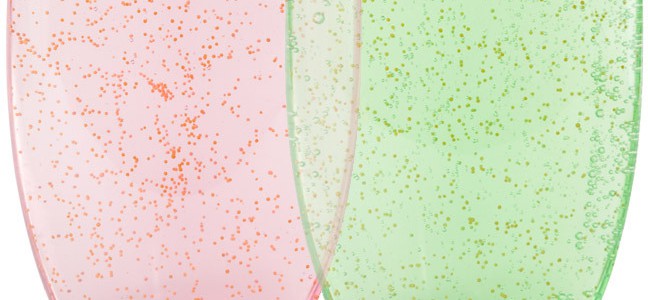Reflecting on Earth Day this year, I found myself thinking how daunting the fate of our ocean environment, loss of biodiversity and climate change challenges seem when you consider all the issues we are tackling. Our report card isn’t very good since the first Earth Day in 1972. We have to face the fact that we humans have a history of doing things to feed our needs and wants without thinking about downstream consequences. Of course that’s a generalization - some of us are much more conscientious. But when it comes to industry trends, too many technologies that are marketed to make us more beautiful, slim, satisfied or entertained slip into our consumer diet without enough concern for the environmental impacts, during production, distribution or post-consumption.
The poster child example is microbeads in our cosmetics. Microbeads were introduced as exfoliants in skin care, beauty products and even toothpaste, replacing traditional, natural, biodegradable alternatives. We’ve known through studies since 2004 that microplastics have been wreaking havoc to our ocean environment and food web, and microbeads washed down our drains into waterways are a big contributor to the plastic pandemic.
Like most plastic in our society, these tiny plastic microspheres became the personal care industry’s go-to material for exfoliating products because they solved perceived problems and saved money. The consistent size, shape and pearl-like smoothness of the microbeads enabled washes and scrubs to spread easily and impart a silky versus gritty texture, and their inert quality was a boon for those with sensitive skin. Plus, they can be colored to make products prettier for visual appeal. And yes, they were cheaper and easier for manufacturers to acquire.
Fortunately the tide has turned and pressure is building for personal care companies to stop using microbeads and for state and national governments to ban the sale of them. Many of the larger manufacturers are phasing them out and environmental groups such as 5gyres’ and Beat the Microbead are working hard to lobby the others and get the word out. We need to keep the pressure on and take action, but this is one piece of the plastic pollution predicament we might be able to turn around relatively quickly. The trouble is, the industry is already looking for new technology to replace the microbeads to solve the same “problems.” And as we’ve seen with other efforts to swap out a known toxic material, the replacements can be nearly as bad (such as some BPA-free bottle products being more dangerous than BPA!)
What we don’t need is more synthetic materials to replace the plastic microbeads. But that’s exactly what a loophole in proposed legislation in some U.S. states would allow. Language that allows exemptions for “biodegradable” microbeads are a concern, since the term can be misleading. So-called biodegradable plastic that breaks down into even smaller particles of plastic is not an acceptable alternative. The legislation needs to include clearedefinitions of “synthetic microbeads” and “biodegradable” so that materials that are not capable of decomposing back into natural elements quickly (in wastewater treatment facilities, composting or the ocean environment) are effectively eliminated, as well as ditching exemptions for “over the counter drugs” under which items such as whitening toothpastes, acne cleansers and wrinkle creams can be classified.
One article mentioned a company experimenting with a biodegradable paper-type of abrasive. Others extoll the virtues of using natural eco-friendly scrubbers such as nut shells and fruit pits, but even those deserve careful thought on supply-chain considerations such as crop deforestation, water usage and fair trade. And studies should be done to see if these are handled in wastewater systems, and what impact these might have on ocean life - if introduced in massive quantities, as microbeads have been.
Let’s resolve this year to put this microbead madness behind us and tell industry to go back to natural sources for our personal care and the health of our oceans. Following are ideas and resources for taking action in your locale. If we can make a difference quickly in this piece of the plastic pollution puzzle, maybe there’s still hope for our short-sighted species and the oceans we depend on.
HOW TO TAKE ACTION ON MICROBEADS IN PERSONAL CARE PRODUCTS:
- Check product labels for plastic content and REFUSE to purchase them (look for terms like polyethylene or microbeads). Or download an app from BeatTheMicrobead.org that enables you to scan bar codes with your smart phone to check microbead content, or refer to their product lists.
- Choose natural alternatives for exfoliants including products with safe and sustainable natural ingredients such as Xtend-Life’s Age Defying Exfoliating Scrub, or make your own.
- Ask local and online retailers to STOP selling consumer products that contain plastic microbeads.
- Join efforts to urge manufacturers to STOP using plastic microbeads in consumer products worldwide and switch to natural, organic materials that do not pollute the environment.
- Sign a petition or contact your local or state legislators to support bans on microbeads in consumer products and over the counter drugs.
- Support or donate to organizations running campaigns to ban microbeads.




I would, definitely, sign a Petition to have our Oceans and other waters and spillways cleaned up!!!!